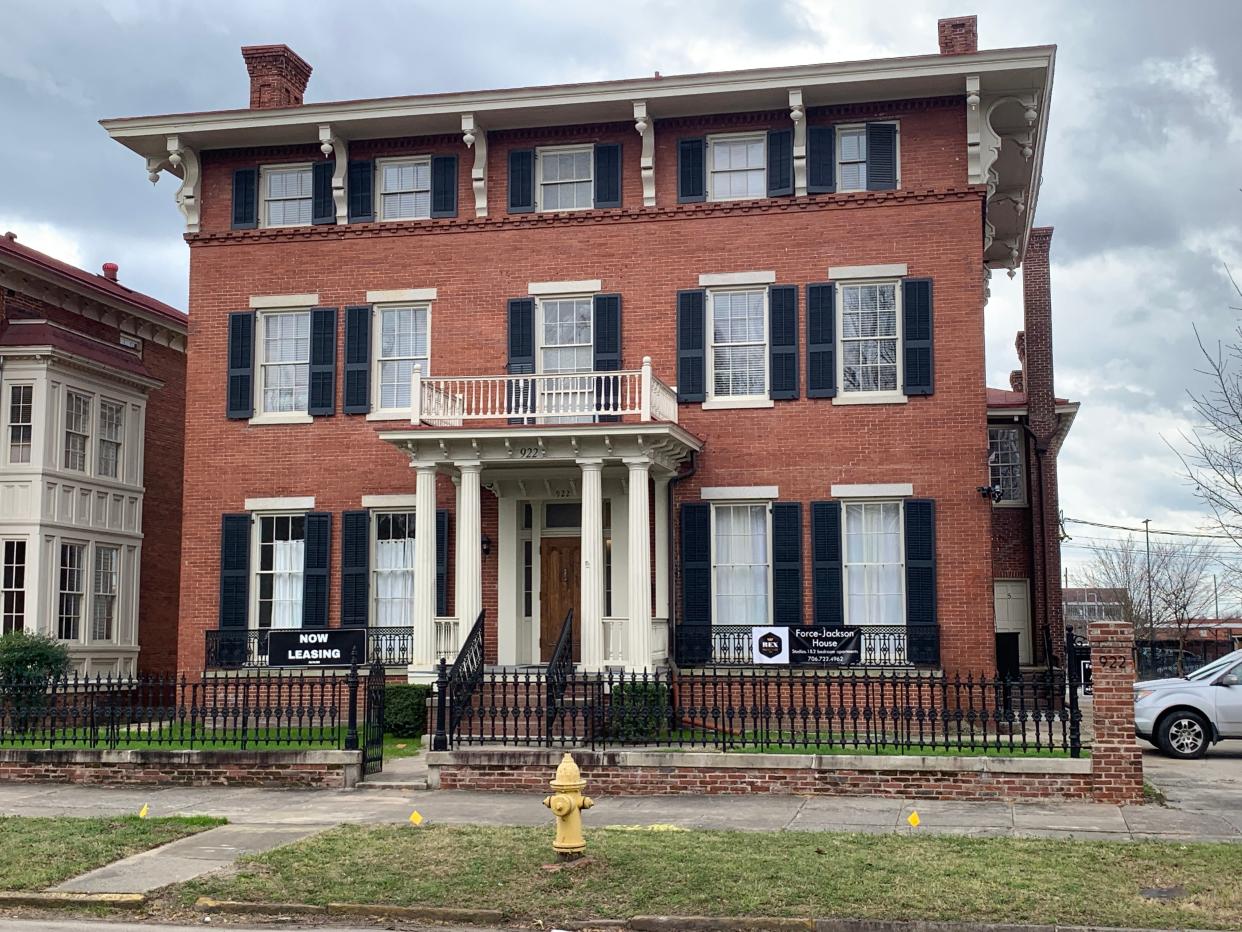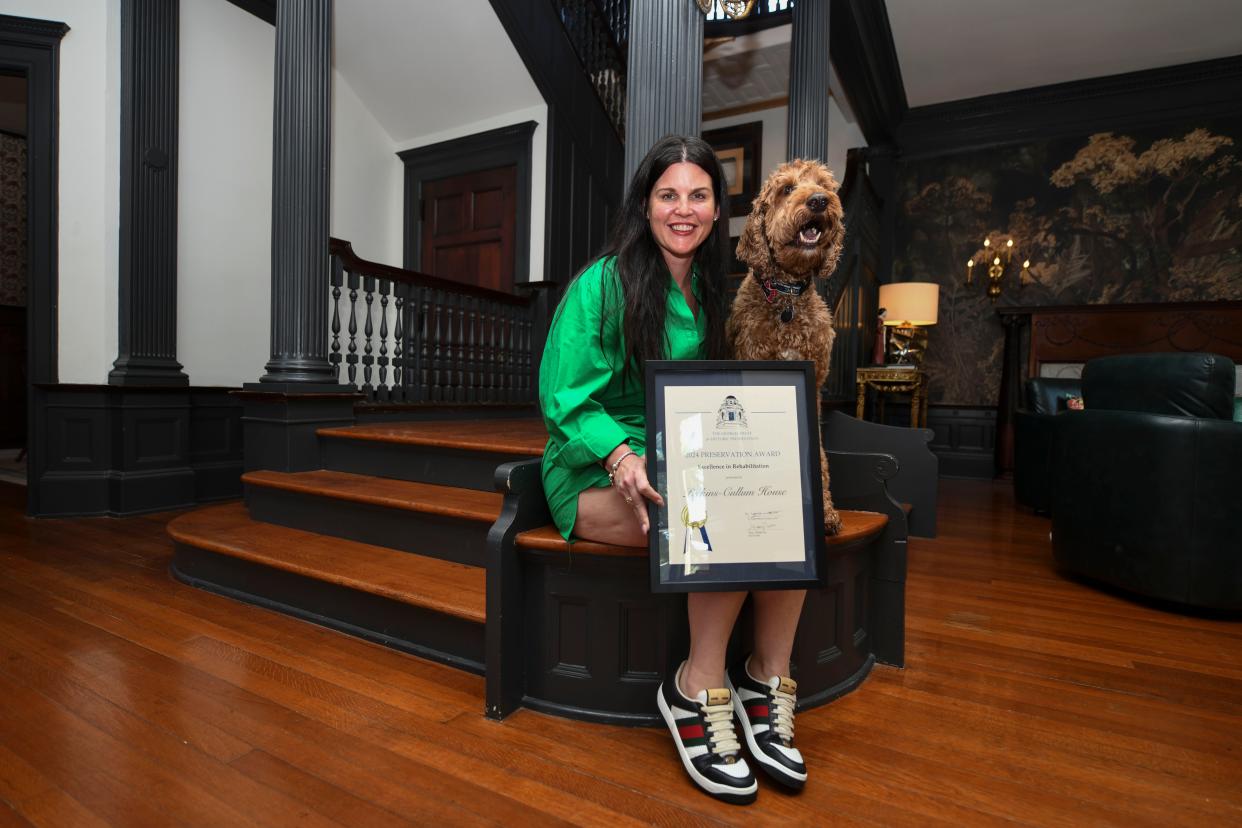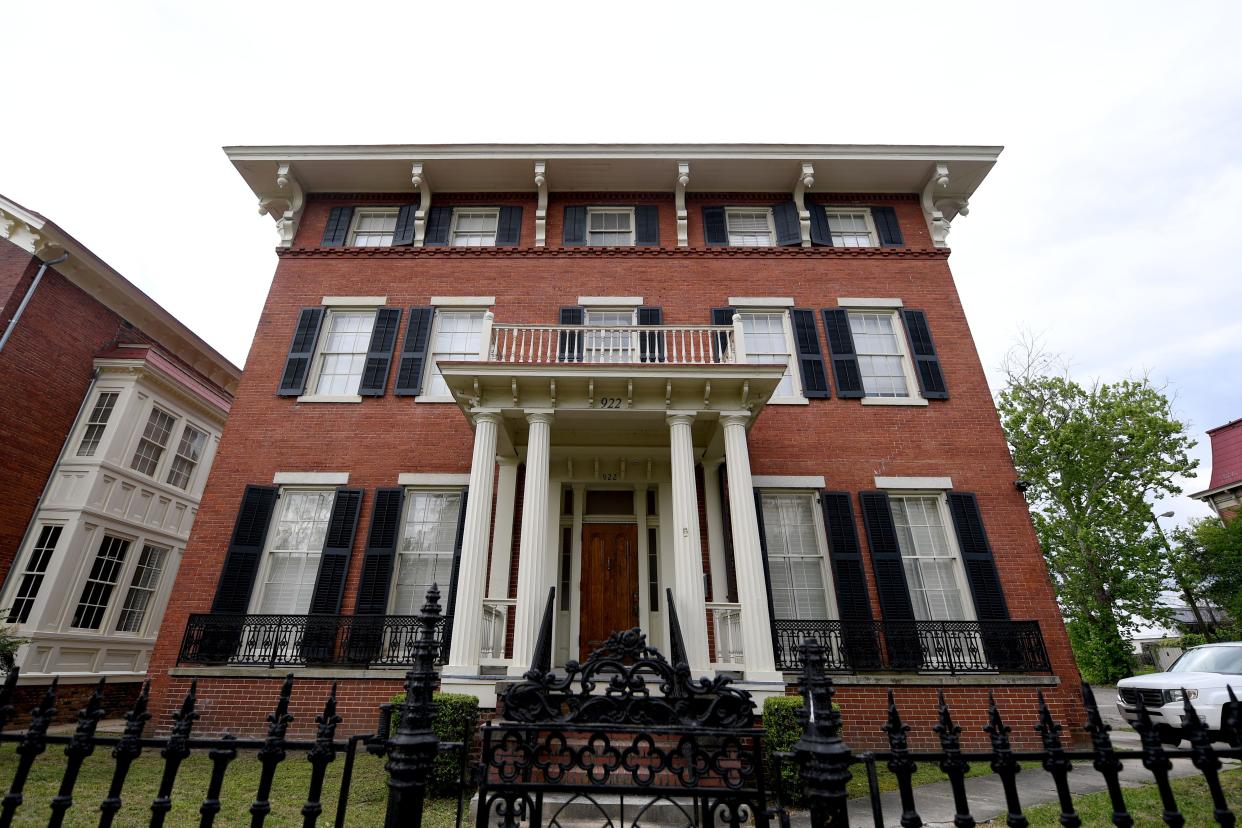This old house, and three other Augusta properties, honored for historic preservation
More of Augusta's history is being preserved, but not without important help.
Four Augusta properties recently joined 21 others statewide in being recognized as exceptional examples of historic preservation by the Georgia Trust for Historic Preservation.
Much of the owners' successes in protecting these buildings can be attributed to the number of tax incentives and grants available to historic-property owners who want to protect their investments but lack readily available funds. Contact the Georgia Department of Community Affairs' Historic Preservation Division by visiting www.dca.ga.gov/georgia-historic-preservation-division to learn more about the full array of available state, federal and private preservation funds.

Force-Jackson House, 922 Greene St.
Built in 1853, the Italianate-style was a private home until the YWCA moved in by 1916 from cramped quarters above a drug store at Seventh and Broad streets. By 1993 it was home to St. Stephen's Ministry, a transitional housing facility for homeless people with HIV and AIDS.
In 2019, Paul King of Rex Properties began a $1.6 million project renovating 922 Greene into apartments. The planned number of apartments fluctuated, but the home became 12 apartments, with the original floor plan mostly intact while preserving floors, doors, windows, mantels and exterior elements.

Perkins-Cullum House, 510 Greene St.
The home was built in 1902 by Henry C. Perkins, who in 1891 founded the machine shop that became GIW, or Georgia Iron Works. His daughter Gertrude Perkins Cullum, wife of Augusta department store owner St. Julian Cullum, inherited the house in 1928. She established the Cullum School of Speech Reading, a school in the back yard for people with hearing problems, and the Augusta Club for the Hard of Hearing.
Becoming apartments and for a short time a ceramics workshop, the building's condition declined until local preservation group Historic Augusta posted the house on its 2015 Endangered Properties List.
In converting the house to eight apartments, owners Mark and Christy Beckham kept the original floor plan and the house's heart-pine floors, doors and mosaic porch.

Prontaut-Henry House, 407 Telfair St.
The house dates to about 1875 and until the mid-20th century was a private home. Later serving as law offices and the district office for U.S. Rep. Doug Barnard, the vacant property made Historic Augusta's 2019 Endangered List.
Owner Mark Donahue kept not only the heart-pine floors but also original plaster, trim and window frames when redesigning the house. It's now six loft-style apartments, with new heating-and-air systems, modern kitchens and updated plumbing.
Augusta Warehouse & Compress Co., 1812 Slaton St.
Designed by famed Southern architect Lloyd Preacher in 1916, the Augusta Warehouse & Compress Co. is the only remaining cotton warehouse complex from the early 20th century in Augusta. It once could hold up to 60,000 bales of cotton. The "compress" in the name refers to the process when bales from cotton gins are compressed to half-size for easier transport.
Albany-based developer Pace Burt converted the 35 industrial compartments into 140 apartments collectively renamed The Loft.
"Facing challenges like severely neglected roofs and the need to balance existing character with modern needs, the preservation effort successfully retained the district’s historical significance," according to the Georgia Trust.
This article originally appeared on Augusta Chronicle: Georgia Trust honors four historically preserved Augusta properties
